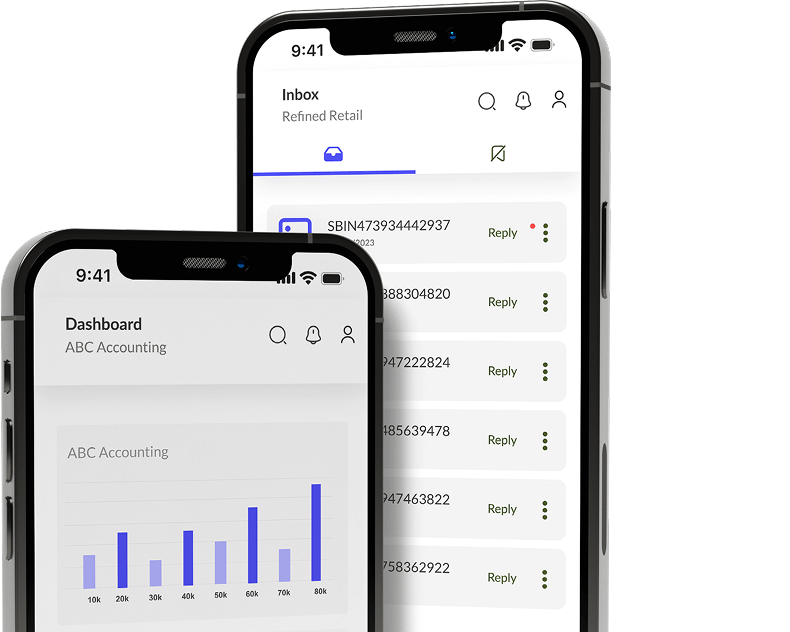Once you adopt automation in your accounting systems, the invoice capturing and matching becomes faster. The month-end moves faster. And yet, somehow, the job descriptions still talk about typing invoices and chasing for approvals. This exact mismatch slows adoption and blurs ownership. You can define a clear way for finance leaders to reset the roles.
Start with the work that changed
Skip the titles for a moment and look at what your team members are actually doing.
Steps once done by hand now run in software
Exceptions show up sooner and need judgement
Evidence for audit is easier to collect
If a tool like Accomation.io handles intake, matching, and routing, the human job shifts from pushing buttons to tuning rules, fixing root causes, and proving that controls work. Roles should reflect that. And that is why the roles should reflect exactly that.
Rename only when ownership moves
It is important to keep in mind that a new title should signal a new outcome or a decision that would come with it. If a role’s purpose is the same, you can keep the title and just rewrite the responsibilities. Change the name only when accountability and skills have clearly moved.
Good candidates for a new or refined title
Here are a few samples of reworked titles.
Accounts Payable Clerk → Accounts Payable Automation Specialist
Owns the invoice workflow in the tool. Clears exceptions within two business days. Keeps supplier records clean. Checks that Goods and Services Tax (GST) treatment is correct.
Accounts Receivable Executive → Collections and Cash Application Lead
Uses automated reminders. Solves disputes. Improves how cash is applied to the right invoices. Shares a weekly customer risk view with sales.
General Ledger Accountant → Close and Controls Analyst
Reviews automated reconciliations. Investigates breaks. Certifies balances with time-stamped proof. Keeps the month-end checklist on track.
Tax Associate → Indirect Tax Operations Analyst
Monitors data quality for e-invoices and e-way bills. Reconciles supplier statements to the ledger. Tracks rule changes that affect filings.
Finance Operations Manager → Automation Product Owner
Sets the improvement backlog for platforms like Accomation.io. Defines success measures. Coordinates change with audit and IT.
Keep the title, but sharpen it
Here are a few examples of the same.
Controller
Still maintains accuracy and compliance under Indian Accounting Standards (Ind AS) and the Companies Act. Add targets for automation adoption, control health, and the age of unresolved exceptions.
Business Partner / Planning Analyst
Still supports decisions. Drop manual data pulls. Add scenario analysis and plain-English explanations for non-finance leaders.
Make controls tighter, not looser
Automation should make audits simpler.
Evidence by default. Every action leaves a trail; who did it, when, and based on which document.
Clear approvals. If a software robot posts a journal, a person approves the rule, and another person reviews unusual entries.
Named owners. For each automated step, name one owner and one reviewer. State how often they check it and which report proves it.
Map these to Internal Financial Controls, GST needs, and any listed company obligations. Keep the wording short and concrete.
Update skills in job descriptions
Be specific. Keep it practical.
Exception handling. Read system flags, fix root causes, and escalate only real edge cases.
Data quality. Maintain supplier and customer records, prevent duplicates, and validate GST registration numbers.
Simple rule changes. Adjust matching tolerances and approval paths within policy. No heavy coding.
Tool hygiene. Manage access rights, version updates, and back-ups.
Clear communication. Help suppliers and internal teams send clean data so the flow stays smooth.
Rewrite responsibilities with three words: own, do, decide
Short lines beat long lists.
Own: “Own the exception queue in Accomation.io. Keep the backlog under two business days.”
Do: “Resolve price and quantity mismatches with procurement. Update supplier master data.”
Decide: “Approve tolerance changes up to a set limit. Escalate larger changes to the Controller.”
Area-by-area examples
Supplier bills (accounts payable)
Old: “Process invoices.”
New: “Tune matching rules, clear exceptions fast, keep supplier data accurate, validate GST treatment, and produce monthly evidence for internal and statutory audit.”
Customer billing and collections (accounts receivable)
Old: “Send invoices. Chase payments.”
New: “Automate reminders, focus on disputes and credit holds, improve cash application accuracy, and share a weekly past-due view with sales.”
Month-end close and reconciliations
Old: “Prepare schedules.”
New: “Review automated reconciliations, investigate breaks, certify balances with proof, and publish a simple close status.”
Indirect tax
Old: “Compile returns.”
New: “Keep data clean during the month, reconcile supplier statements to the ledger, track rule changes, and reduce late adjustments.”
How Accomation.io fits
Use the platform to automate intake, matching, and routing. Then assign a human owner to:
Monitor and clear the exception queue.
Adjust rules within policy to cut noise.
Track supplier error rates and share a short guide to avoid repeats.
Export clean evidence for audit.
That is not “babysitting a bot.” It is improving throughput, cash flow, and control quality.
Rolling out the changes
Explain the purpose: faster cycles, fewer errors, stronger controls.
Show a “week in the life” for each role, what stops and what starts.
Train on last month’s real issues.
Measure what matters: first-pass yield, age of exceptions, duplicate rate, tax mismatch rate, and close variances.
Keep pay bands fair. Avoid title inflation. Reward results.
The takeaway
Automation does not replace finance teams. It changes where they create value. Redesign roles to match that reality, and rename only when it clarifies ownership and skill. Keep India’s rules in view. Use tools like Accomation.io to remove busywork and let people focus on accuracy, cash, and control.




